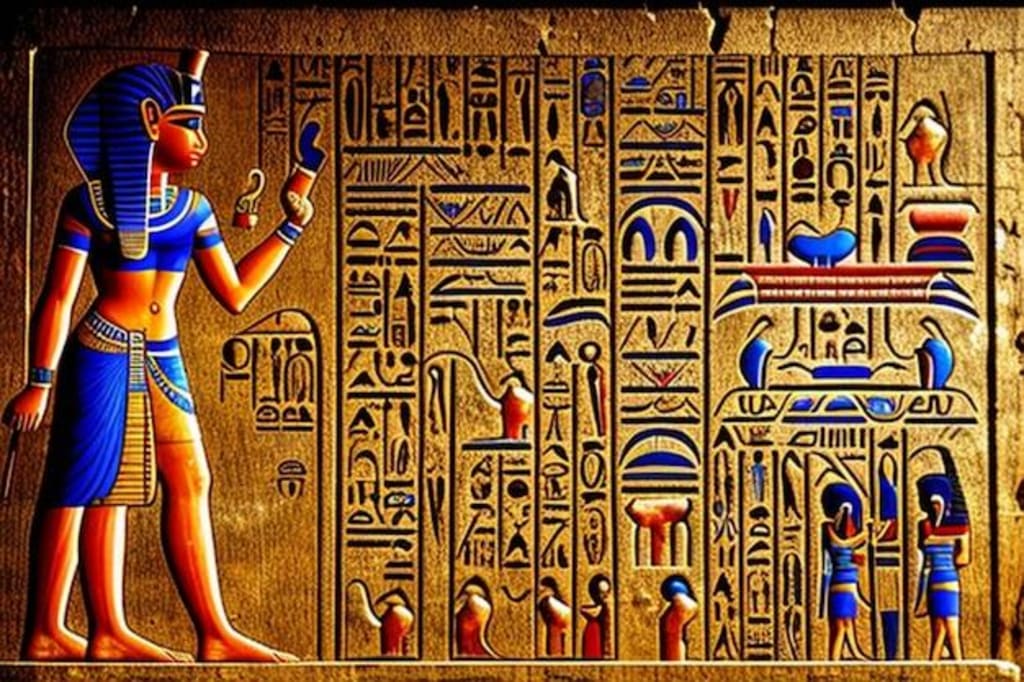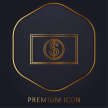
A cornerstone of their cultural and spiritual identity was their pantheon of gods and goddesses, a rich tapestry woven with threads of myth, mysticism, and reverence. Join us on a captivating journey through the corridors of time as we delve into the captivating world of Egypt's famous gods, unraveling the tales that shaped an empire and influenced beliefs for millennia.
The Divine Ensemble: A Pantheon of Power
At the heart of Egyptian mythology stands a vast pantheon, each deity holding a unique role and significance in the cosmic order. Among the most revered gods is Ra, the sun god and creator of the universe. Often depicted with the head of a falcon crowned with a sun disk, Ra's journey across the sky symbolized the eternal cycle of life, death, and rebirth.
Isis, the goddess of magic and motherhood, is another luminary figure. Her story, intertwined with the resurrection of her husband Osiris, reflects the eternal struggle between life and death. Osiris, ruler of the afterlife, became a symbol of resurrection and regeneration, offering solace to those navigating the delicate balance between mortality and the great beyond.
The Enigmatic Anubis: Guardian of the Underworld
Venturing into the underworld, we encounter Anubis, the jackal-headed god of mummification and the afterlife. With a keen eye for the preservation of souls, Anubis guided the deceased through the perilous journey of judgment. His role in the meticulous process of mummification emphasized the Egyptians' profound belief in the preservation of the physical form for the afterlife.
The Avian Majesty of Horus and Thoth
Horus, the falcon-headed god, emerged as a symbol of divine kingship and protection. Believed to be the son of Isis and Osiris, Horus embodied the pharaoh's role as both ruler and protector. The Eye of Horus, a powerful symbol representing protection, royal power, and good health, adorned amulets and temples throughout ancient Egypt.
Thoth, the ibis-headed god of wisdom and writing, held a pivotal role as the scribe of the gods. Revered for his intellect and mastery over language, Thoth played a crucial role in the judgment of souls in the afterlife. His influence extended to the development of hieroglyphics, the sacred script that adorned the walls of temples and tombs, preserving the knowledge of a civilization for future generations.
The Feline Grace of Bastet
Bastet, the goddess with the head of a lioness or domestic cat, represented home, fertility, and protection. Revered as a gentle deity, she could transform into a fierce lioness to defend her devotees. Bastet's cult grew in prominence, and her image became a common sight in households, symbolizing domesticity and a watchful guardian against evil.
Seth: The Chaotic Force
In the complex tapestry of Egyptian mythology, not all gods embodied benevolence. Seth, the god of chaos, disorder, and storms, stood in stark contrast to the harmony sought by many other deities. His tumultuous relationship with Osiris, which culminated in fratricide, symbolized the perpetual struggle between order and chaos in the Egyptian worldview.
Legacy Beyond the Temples: Egypt's Enduring Influence
As we traverse the landscapes of ancient Egypt, the remnants of temples and statues dedicated to these deities speak of a civilization deeply entwined with its spiritual beliefs. The intricate myths surrounding these gods provided a framework for moral conduct, societal order, and the cyclical nature of life and death.
Beyond the temporal boundaries of ancient Egypt, the legacy of its gods endures. The influence of Egyptian mythology echoes through the ages, shaping artistic expressions, inspiring literature, and even influencing the theological underpinnings of later civilizations. The enduring appeal of these gods lies in their ability to transcend time, inviting us to contemplate the universal themes of creation, death, and the eternal dance of the cosmos.
Conclusion: A Tapestry Woven in Eternity
In the shadow of colossal pyramids and the banks of the Nile, the gods of ancient Egypt beckon us to unravel the mysteries of a civilization that flourished along the river's fertile banks. From the radiant presence of Ra to the enigmatic realm of Anubis, each deity adds a vibrant hue to the rich tapestry of Egyptian mythology. As we explore their stories, we not only uncover the beliefs of a bygone era but also glimpse into the collective soul of a people whose quest for meaning and transcendence left an indelible mark on the pages of history. Join us in this odyssey through time, where gods and mortals coexist in a dance that transcends the boundaries of the earthly realm.






Comments
G.I.B is not accepting comments at the moment
Want to show your support? Send them a one-off tip.